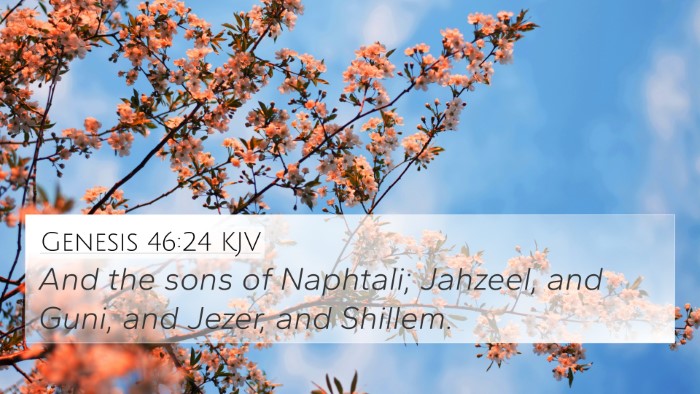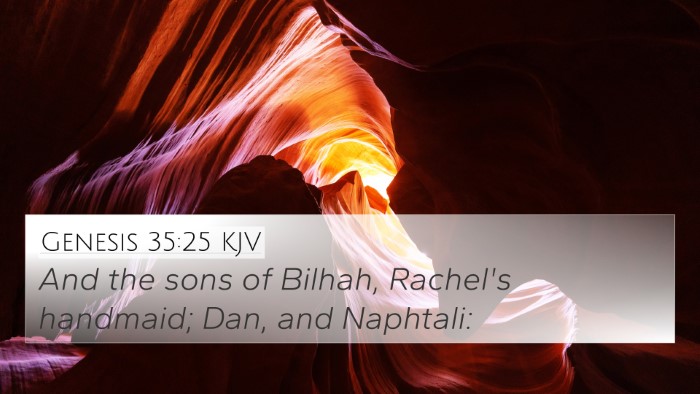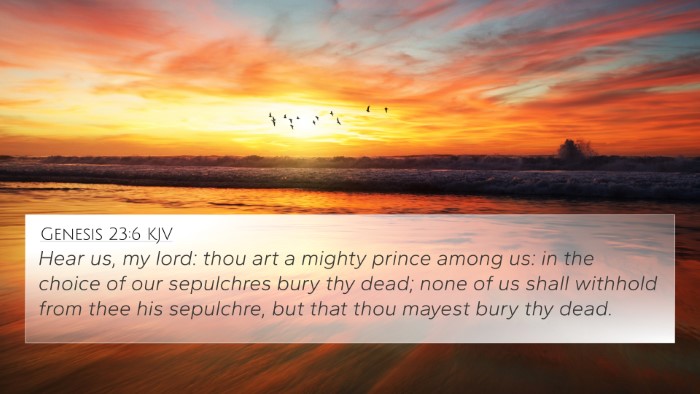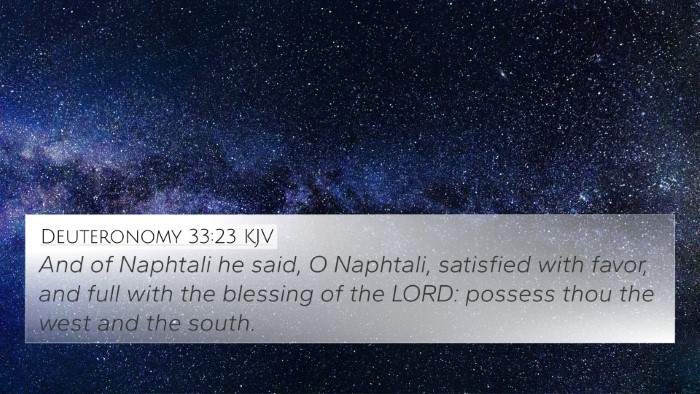Understanding Genesis 30:8
Genesis 30:8 states: "And Rachel said, With great wrestlings have I wrestled with my sister, and I have prevailed: and she called his name Naphtali." This verse is situated within the broader narrative of Jacob’s family and the dynamics between Rachel and Leah, which serve to illustrate themes of rivalry, struggle, and divine providence.
Interpretation Overview
This verse reflects Rachel’s intense feelings of competition with her sister Leah, indicating her desperation and fervor in bearing children. The name "Naphtali," which means "my wrestling," signifies the emotional and spiritual battles Rachel faces as she attempts to find her place in her family and secure her husband Jacob's affection.
Commentary Insights
Matthew Henry
Henry discusses the deep sense of rivalry between Rachel and Leah, emphasizing Rachel's turmoil over her inability to bear children initially. He notes that Rachel's exclamation points to her struggle not just for a child, but for recognition and love in a polygamous family situation, illustrating the complexities of familial relationships.
Albert Barnes
Barnes elaborates on the significance of Rachel's use of the word "wrestlings." He explains how this term highlights the fierce and passionate nature of her struggle for motherhood. The involvement of God in this narrative suggests that Rachel's struggles are not merely personal but are woven into the larger tapestry of God’s covenant with Jacob and his descendants.
Adam Clarke
Clarke offers profound insights into the cultural context of the period, explaining how the act of naming a child carries significant weight. He asserts that Rachel’s declaration represents both a victory over her sister and an acknowledgment of God’s intervention in her life, pointing out the deep spiritual implications behind childbirth in ancient Israelite society.
Cross References
Genesis 30:8 is related to several other passages that help deepen the understanding of its themes and characters:
- Genesis 29:31-32: The birth of Reuben and Leah’s feelings of being loved.
- Genesis 30:1: Rachel's initial despair and demand for children.
- Genesis 35:18: The significance of names in the context of Rachel and her children.
- 1 Samuel 1:10-11: Hannah's similar prayers and struggles for a child.
- Romans 9:10-13: The understanding of God's choice and favoritism, reflected in sibling rivalry.
- Genesis 49:21: Jacob's prophetic blessing to Naphtali, connecting to the overall lineage and purpose.
- Micah 5:2: Prophetic implications regarding the lineage of Rachel's offspring.
- Galatians 4:22-23: The allegory of Hagar and Sarah as a backdrop for understanding divine promise.
- Hebrews 11:11-12: The faith of women who acted upon God's promise of progeny.
Thematic Connections
Genesis 30:8 exemplifies various themes prevalent throughout scripture:
- Struggle and Rivalry: Much like the conflicts within Jacob’s family, similar struggles surface throughout biblical narratives.
- Motherhood and Identity: Rachel’s desire highlights the societal pressures women face regarding motherhood.
- Divine Intervention: The notion that God plays a pivotal role in the lives of His people, echoing throughout different texts.
- Names and Their Meaning: The significance of names echoing through different biblical stories.
- Faith and Promise: Trusting in God’s plan, as seen in the struggles of various biblical figures.
Conclusion
Genesis 30:8, when examined through cross-referencing different biblical texts, unveils the profound struggles of women in the biblical narrative and how their stories intertwine with God's plan for humanity. The themes of rivalry, identity, and divine purpose are crucial in understanding this verse within the broader context of scripture.











